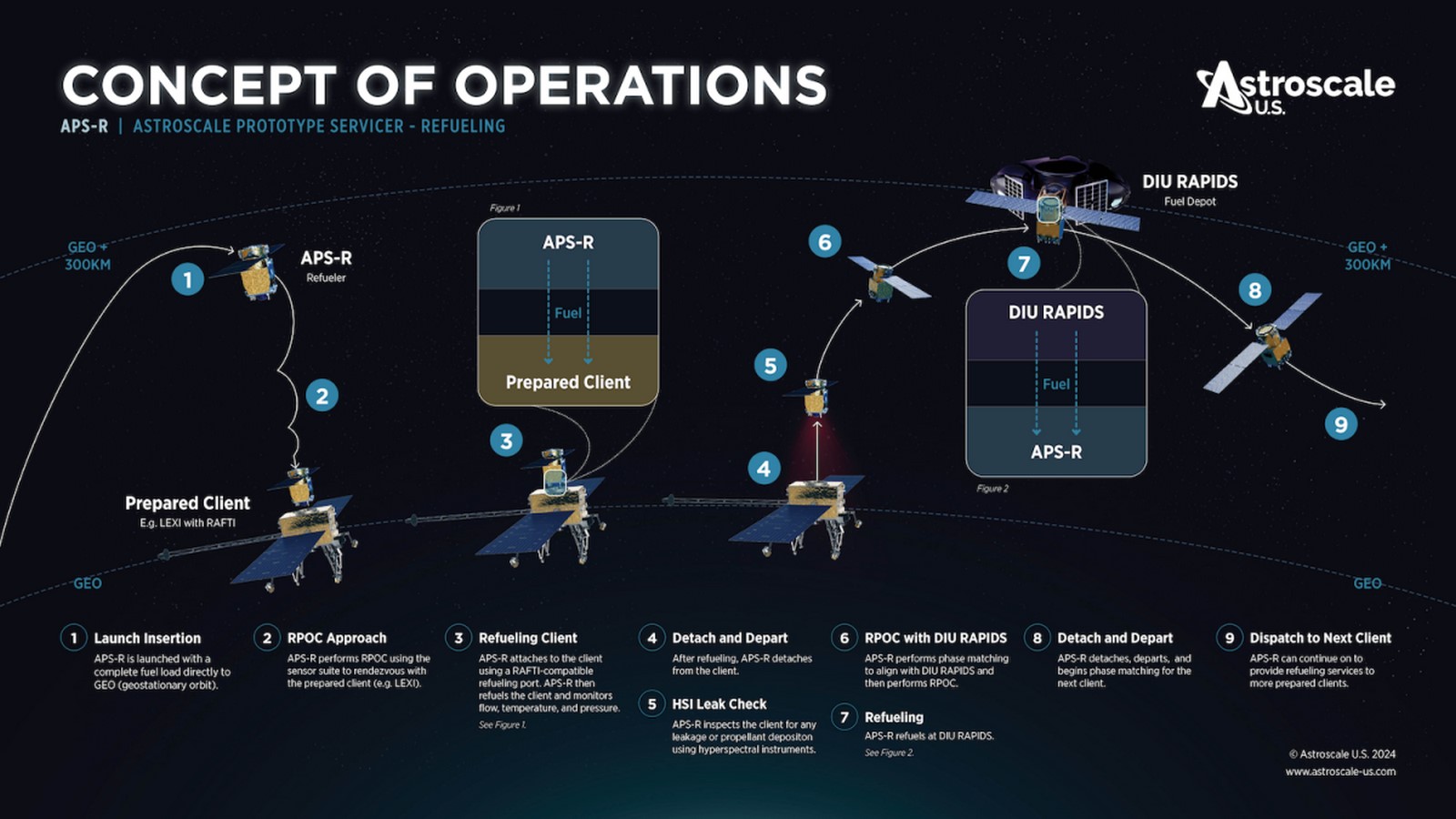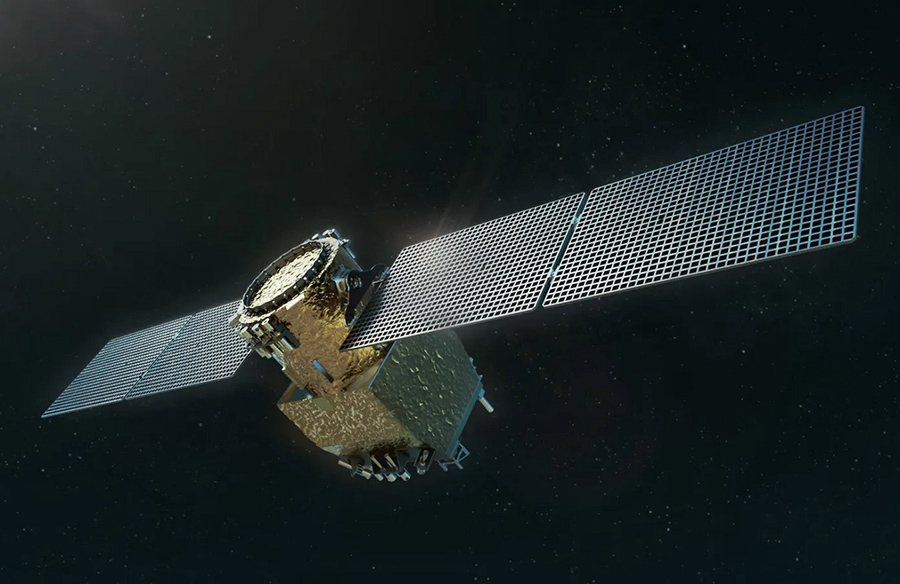Astroscale, a leading orbital operations company, has unveiled further details regarding its orbital refueling technology, developed in collaboration with the Space Force as part of a $25.5 million project. This innovative solution aims to address the critical need for refueling satellites in space, akin to a high-speed rescue service traveling at 25,000 miles per hour.

Addressing Satellite Refueling Challenges
Satellite refueling and servicing in orbit offer a compelling solution to prolong the operational lifespan of satellites and prevent significant financial losses. Many satellites remain fully functional in space for extended periods but face the challenge of deorbiting due to fuel depletion. Astroscale’s initiative seeks to provide a cost-effective alternative to launching replacement satellites by enabling on-orbit refueling.
Introducing the Astroscale Prototype Servicer for Refueling (APS-R)
At the heart of Astroscale’s endeavor is the Astroscale Prototype Servicer for Refueling (APS-R), a compact satellite designed to rendezvous with client satellites in geosynchronous orbit (GEO) approximately 300 kilometers above Earth’s surface. The APS-R, comparable in size to a gas pump, will dock with prepared client satellites equipped with refueling ports, facilitating the replenishment of their fuel reserves.
Refueling and Inspection Process
Following the refueling operation, the APS-R will conduct a comprehensive inspection of the client satellite to detect any fuel leaks or operational issues. Subsequently, it will ascend back to GEO+ and rendezvous with a Defense Innovation Unit RAPIDS fuel depot, functioning as an orbital gas station. This depot serves as a vital resource for future refueling missions, ensuring the sustainability of satellite operations in space.
Embracing Orbital Gas Station Model
While alternative concepts of space-based refueling advocate for onboard fuel storage, Astroscale’s approach prioritizes the utilization of a centralized fuel depot. Despite the complexity inherent in shuttle-based refueling operations, Astroscale aligns with the Space Force’s preference for a geostationary pressure vessel model, emphasizing safety and reliability.
Future Prospects and Project Timeline
Although still in the conceptual phase, Astroscale anticipates delivering the orbital refueling technology by 2026. As the project progresses, further advancements and insights into space sustainability initiatives are expected to emerge, reinforcing the significance of orbital refueling in extending the lifespan and functionality of satellites in Earth’s orbit.


